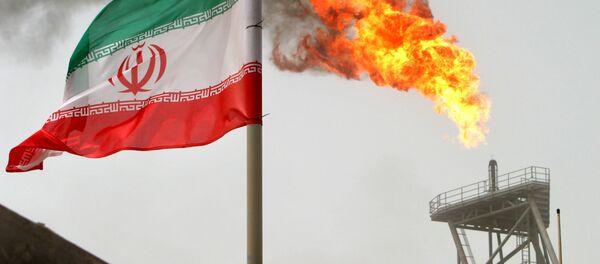Earlier in the day, crude markets tumbled after Trump told reporters that he called OPEC members and asked them to lower oil prices. The US president doubled down on the assertion a few hours later in a tweet saying he spoke to Saudi Arabia and other countries about increasing oil production.
Spoke to Saudi Arabia and others about increasing oil flow. All are in agreement. The California tax on gasoline is causing big problems on pricing for that state. Speak to your Governor about reducing. Economic numbers, 3.2% GDP for what is often worst quarter, looking good!
— Donald J. Trump (@realDonaldTrump) April 26, 2019
Saudi Energy Minister Khalid Falih and OPEC's Secretary General Mohammed Barkindo both denied speaking to Trump about lowering oil prices, the Wall Street Journal reported citing people familiar with the matter.
READ MORE: No More Sanctions Waivers for Iranian Oil: US Policy Against Iran Illegal — Prof
On 22 April the White House announced that there will be no more exemptions from sanctions for countries buying Iranian oil.
The move to end waivers did not come as a surpise: after the US withdrew from the so-called Iran Nuclear Dead (Joint Comprehensive Plan of Action) last year, it has repeatedly stressed that it wants all importers to eventually cut their oil sales from Iran to zero, which is likely to have a significant impact on the Middle Eastern country.
READ MORE: US Trying to Put Pressure on Iran to Push for Regime Change — Moscow
Following the announcement, Russia's Foreign Ministry noted in a statement that the US was trying to increase external pressure on Iran using invented claims in order to push regime change in a sovereign state from the outside.
"Despite regular assurances from the IAEA that Tehran has been meticulously fulfilling all of its [Joint Comprehensive Plan of Action] requirements, Washington unfoundedly accuses it of secret missile and nuclear ambitions. The goal is, under the pretext of invented claims, to maximize external pressure on Iran in order to, despite international law, achieve a change of power in the sovereign state from outside," the Russian Foreign Ministry said.
"The #US decision to end sanctions waivers on #Iran oil imports will not serve regional peace and stability, yet will harm Iranian people. #Turkey rejects unilateral sanctions and impositions on how to conduct relations with neighbours," Cavusoglu said on Twitter.
Being one of the world's biggest importers of Iranian oil, China has criticized the Trump administration's decision as well, saying that it would have ramifications for Middle East security.
"China opposes the unilateral sanctions and so-called 'long-arm jurisdictions' imposed by the US", Chinese Foreign Ministry spokesperson Geng Shuang said.
READ MORE: No More Sanctions Waivers for Iranian Oil: US Policy Against Iran Illegal — Prof
Brent crude reached a 6-month high earlier in the week after the US announcement to end sanctions waivers for importers of Iranian oil.




